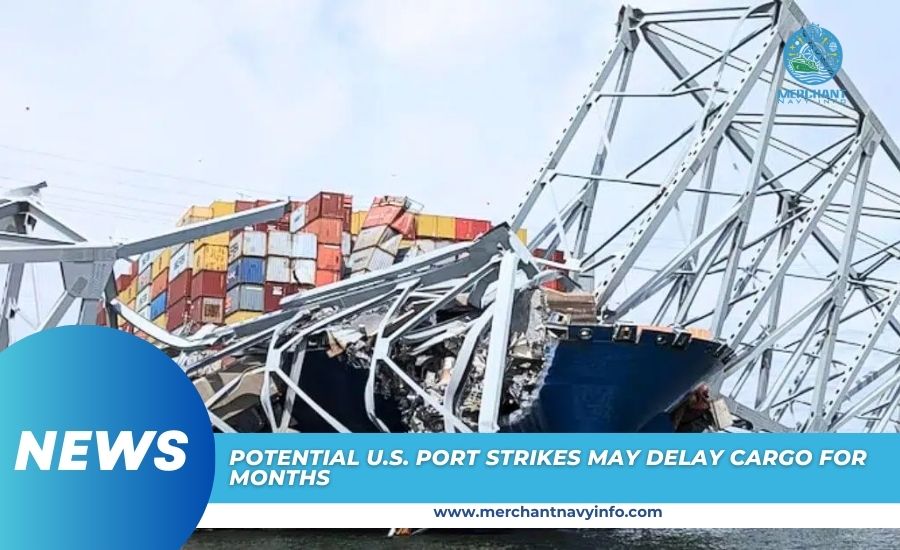
Shipping experts said on Wednesday that potential attacks at U.S. East Coast and Gulf of Mexico seaports could delay cargo shipments for weeks or even months.
Retailers such as Walmart and other importers are scrambling to get goods in before a union contract covering. About 45,000 shore workers at three dozen seaports from Texas to Maine expire on Sept. 30.
Furthermore, their goal? Unloading cargo in the U.S. by Oct. 1, when the International Longshoremen’s Association, which represents the workers, pledges to strike if a new contract is not signed.
Analysts at Copenhagen-based shipping consultancy Sea-Intelligence estimated that clearing the backlog from a one-day strike could take four to six days.
Potential Strikes At U.S. Ports Could Delay Cargo Shipments For Months.
“That means a (week-long) strike in early October would not be resolved until mid-November,” Sea-Intelligence CEO Alan Murphy said.
Murphy said a two-week strike could mean ports would not return to normal operations until 2025.
Moreover, the results reflect the concerns of A.B. Moller-Maersk, one of the largest shipping lines. Maersk said a week-long stoppage could take up to six weeks to recover. With “significant delays that are increasing by the day.”
This early shipping strategy has come at a high cost for carriers. Peter Sand, a senior analyst at pricing platform Zeneta, said off-contract spot market prices for shipping 40-foot containers from the Far East to the U.S. East Coast topped $10,000 in early July, up from $2,100 in early April.
“The threat of attacks on ports has to be met with swift action,” Sand said.
However, as the deadline for a new deal approaches, that window is closing. Attacks by Yemen’s Houthi rebels in the Red Sea have diverted shipping, meaning it could take 45 days or more to get goods from Asian factories to East Coast and Gulf ports.
“Sending cargoes next week … is too late because they could be left in the water if there is a widespread strike at ports,” Sand said.









